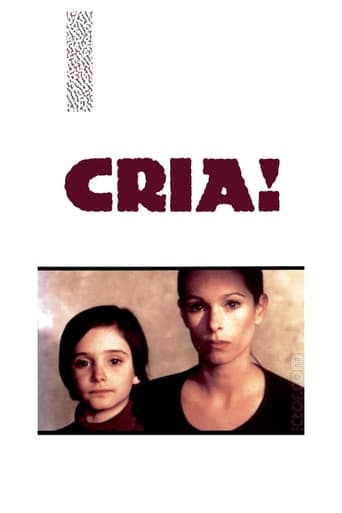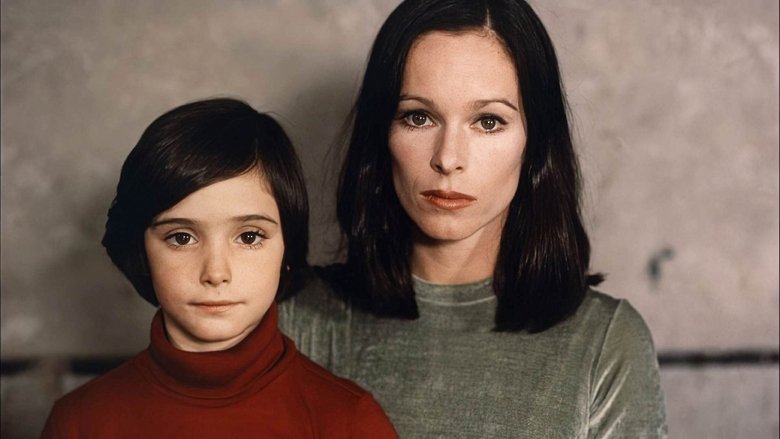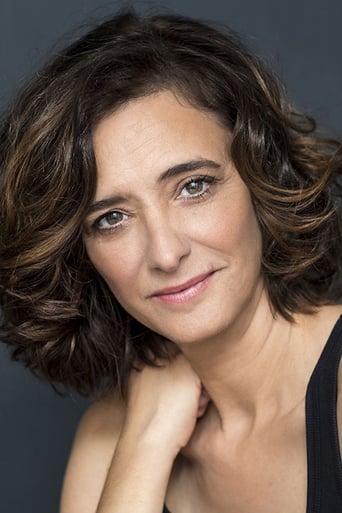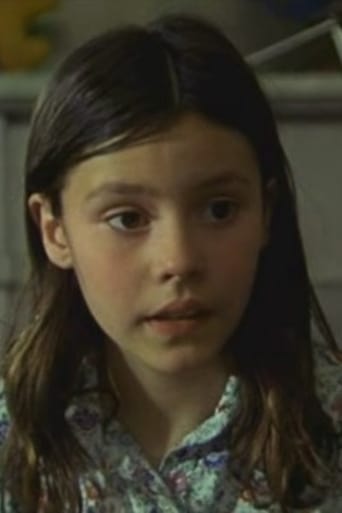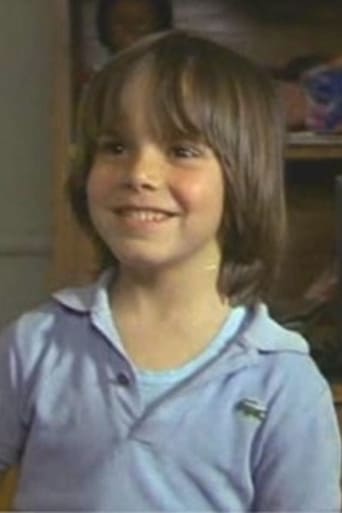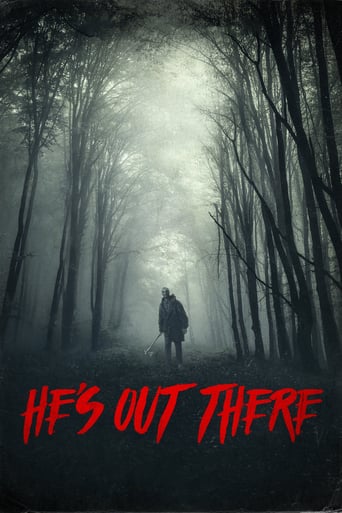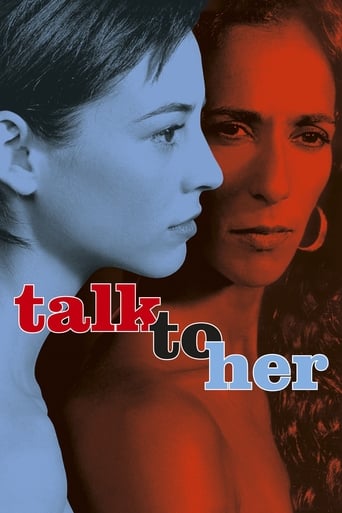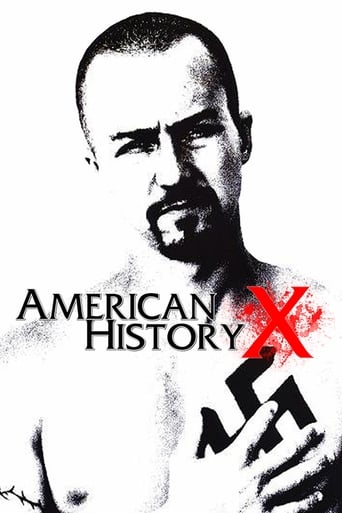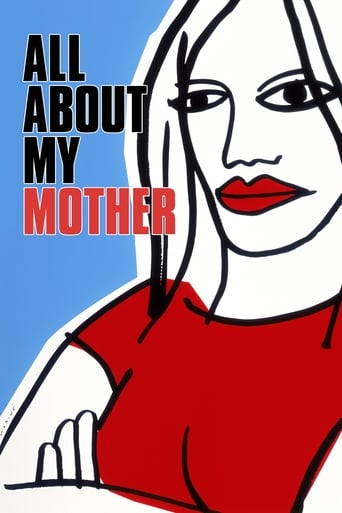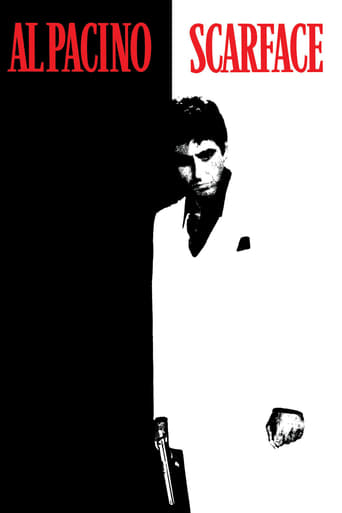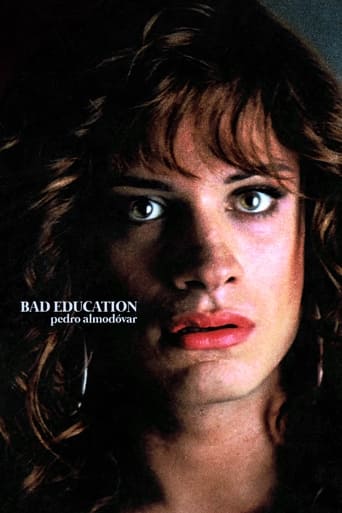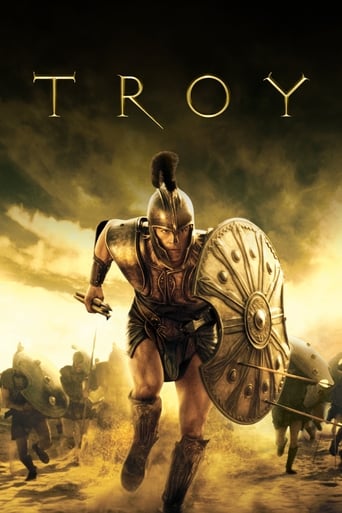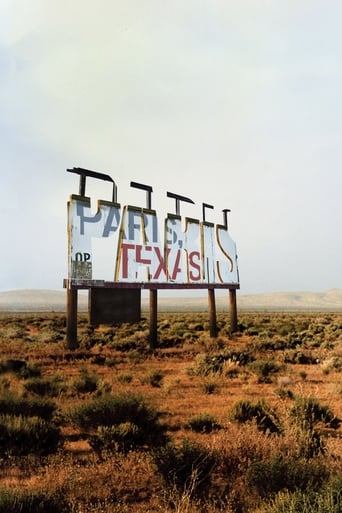Cria! (1976)
Ana, an eight-year-old girl living in Madrid with her grandmother and two sisters, mourns the death of her mother.
Watch Trailer
Cast


Similar titles
Reviews
To me, this movie is perfection.
I don't have all the words right now but this film is a work of art.
Great Film overall
what a terribly boring film. I'm sorry but this is absolutely not deserving of best picture and will be forgotten quickly. Entertaining and engaging cinema? No. Nothing performances with flat faces and mistaking silence for subtlety.
Sensational film that dispenses a brooding plot and considered to be one of the best Spanish films , in fact was voted one of the best Spaniard film by professionals and critics in 1996 Spanish cinema centenary . Well directed film by Carlos Saura , including his own story and screenplay , who tried to create an enjoyable flick plenty of symbolism and metaphor by tackling a description about a particular family formed by three little girls , their stiff aunt and grandmother . This slow-moving and intelligent picture is well set in Spain of the 70s , in Madrid, the orphan sisters Ana , Irene, and Maite (Ana Torrent ,Conchita Perez , Maite Blasco) are raised by their spinster aunt (Monica Randall), after dieing their mother by a painful illness , and living together their silent and wheelchair-bounded grandmother . Melancholic Ana is traumatized after viewing death of her daddy (Hector Alterio ) in bed and painful disappearance her mum (Geraldine Chaplin who married Carlos Saura) , and she drifts into her own fantasy world . The fragile , single little Anna dreams of meeting her mom and she is obsessed by death . Sensitive film full of feeling , haunting mood-pieces , wonderful images and sense of wonder . However , it turns out to be some claustrophobic , being mostly filmed at a Madrid mansion and brief outdoor scenes in Quintanar, Segovia, Castilla y León . This extraordinary flick spells through intricate patterns of frames , sets , sound and color . The title in Spanish stems from the phrase "Raise ravens and they'll pluck out your eyes" , the equivalent phrase in English would be "you reap what you sow". This film was notorious in the years of the Franco's downfall dictatorship including provoking and polemic issues and played by known and prestigious actors as Geraldine Chaplin , Monica Randall and Hector Alterio . In addition , a magnificent support cast such as German Cobos , Mirta Miller and special mention to Florinda Chico as a likable servant . His style is pretty much dry in the atmosphere as in the fresh dialog , as well as realistic , and including fantastic elements as when appears the ghost mother . ¨Cria Cuervos¨ is one of Saura's undisputed masterpieces and fundamental in his filmography where shows efficiently some peculiar characters and shot at the height of his creativity, in a period cultural difficult, where the enormous censorship of the political regime exacerbated the ingenuity and imagination of the scriptwriters . Splendid , luxurious photography with juicy atmosphere by Teo Escamilla who along with Luis Cuadrado are considered to be two of the best Spanish cameramen , both of whom worked for Saura . Interesting screenplay by the same director based on a original story . Moving and emotive musical score by Federico Mompou and of course the unforgettable theme song "Porque Te Vas" sung by Jeanette that was an enormous European hit , and appealed even to people who didn't understand Spanish language . This touching picture will appeal to Spanish films buffs ; being deservedly nominated for Golden Globe , and another 8 wins & 3 nominations . Rating : Top-notch and outstanding movie , worthwhile seeing .The motion picture perfectly produced by magnificent producer Elias Querejeta was stunningly directed by Carlos Saura , a good Spanish movies director. He began working in cinema in 1959 when he filmed ¨Los Golfos ¨(1962) dealing with juvenile delinquency from a sociological point of view . He subsequently made LLanto por Un Bandido (1964) starred by an European all-star-cast . Saura is a well recognized filmmaker both nationally and internationally, and in proof of it he won many prizes among which there are the following ones: Silver Bear in Festival of Berlin for Peppermint Frappé (1967) and the successful La Caza (1966) that also won numerous prizes in International Festivals and in which four characters facing each other and terminating into a jarring burst of violence . Saura achieved Special Jury Awards in Cannes for La Prima Angélica (1974), in 1973, and for Cría Cuervos (1976), in 1975. Also, the film Mamá Cumple Cien Años (1979) got an Oscar nomination in 1979 as the best foreign film, and it also won the Special Jury Award at the San Sebastian Festival. He subsequently made ¨Deprisa , Deprisa¨ based on facts about juvenile delinquency in Spain since the 80s , as he tried to take a position in favour of outcast people and he got to make a both lyric and documentary-style cinema . In 1990, he won two Goya , The Spanish Oscar , as best adapted screenplay writer and best director . Saura became an expert on Iberian musical adaptations as ¨Carmen , Amor Brujo , Bodas De Sangre , Sevillanas , Iberia , Salome , Fado, Flamenco ¨ and even recently Opera as ¨Io , Don Giovanni¨
As yet unavailable on DVD in the UK, this brilliant Spanish classic is now back on the big screen in a beautifully restored print. Thirty five years after it was made, Cria Cuervos is (by and large) just as potent and relevant as it was when first released.There is a scene, quite early on in the film, where a young girl called Ana, and her two sisters, walk into their aunt's bedroom and start playing with her makeup and wardrobe, rouging their cheeks and applying lipstick in copious amounts. I think, at that point, almost everyone in the screening, tried to hide a sardonic smile.However, it is not for its ironies when seen in the present day that we remember this film most. We remember it because it offers us something we very rarely see in cinema: an honest, sincere evocation of childhood and the gradual, warped loss of innocence. That is the premise of dozens of films, I realise, but seldom is anything like this achieved; movies of this type are either cloying and sentimental, or else sensationalised and melodramatic. Neither obtains the poignant sense of disquiet that 'Cria Cuervos' generates.The film begins with Ana losing her father. Her mother, we quickly learn, died a few years ago, and Ana is left an orphan. She and her two sisters are sent to live with their aunt – a fundamentally kind, but authoritarian guardian who Ana, yearning for her own mother, instinctively rebels against. We follow Ana's story from the time of her father's death to the end of the summer holidays, after which she will start school with her sisters.This, I hasten to add, is a very simplified, desiccated overview of the plot. It is a film packed with nuance and subtlety. We learn that Ana's father was in fact a soldier under Franco's regime, and had at one time fought alongside the Nazis. In one of the most memorable scenes in the film, Ana finds her father's gun, still loaded, leading to a tense scene with her aunt and her aunt's lover.Ana is a fascinating child. The eagle eyed film buff might remember the actress who plays her from 'The Spirit of the Beehive', another Spanish classic which deals with similar themes, albeit in a different way. Most striking are those large, brown eyes of hers; Ana is a quiet, observant child, disturbed by her brief glimpses into the adult world, gradually accumulating as she grows older. How much does she understand? Obviously, when Ana grows into an adult and narrates the story through flashback, hindsight will let her comprehend the things she has seen. But what of when she is younger? The answer is largely subjective. The film draws many comparisons between Ana's grandmother and the young Ana herself – the old woman is paralysed, in a wheelchair. She is capable of hearing and seeing – and understanding the things other people say. But she never says anything. Whether this is part of her affliction, or a conscious choice, is left deliberately ambiguous. What we can see is that Ana sympathises with her grandmother, and a gentle, compassionate relationship evolves between the two.I could go on. Perhaps the most impressive thing about the film is the way it seamlessly blends fact, fiction and memory so beautifully and precisely, without ever losing sight of its ultimate goal; indeed, this very blending lends the film an incredible authenticity. Ana feels isolated and alone – her fantasies, from the shocking to the seemingly banal, are desperate and painful. The opening montage, as well, of a collection of family photographs, is extremely subtle and masterful in the way it has us beginning to formulate questions and suspicions – some of which are assuaged, some of which aren't.What a treat this is for any film fan! Carlos Saura (the director), was of course one of the great opponents of the Franco regime, while also rated as one of the most important Spanish directors of the 1970s. This is probably his most well known and powerful film. Childhood can be a frightening, confusing, and sad time, and Saura, with what is arguably his masterpiece, has captured that beautifully. Don't miss!
This gorgeous film can work as something of a companion piece to the sublime 1973 Spanish film Spirit of the Beehive, also starring wide-eyed girl-wonder Ana Torrent. It tells the tale of a a group of three young girls whose parents both die in separate incidents. They are put into the care of their Aunt, who doesn't want them to dwell upon their tragic experiences. The story is told through the perspective of Ana, an imaginative (and rather morbid) girl who tries to understand the complicated adult world and the authority figures that surround her. She believes that she murdered her father with poison, and that her mother visits her in the night. The film doesn't really have any other narrative--it's more of a glimpse into the life of a young girl's summer after experiencing tragedy. Due to this unconventional structure, it can be a bit slow and frustrating at times, but if you stick with it, you might find it to be a rewarding viewing. It's an exceptionally beautiful film, and like Spirit before it, it is never condescending to its lead character. The film is also a fascinating socio-political commentary on post-Franco Spain, and is rich with symbolism and metaphor, much of which I probably didn't catch upon first viewing. However, if you don't have a working knowledge of Spanish history, the film does a fine job as a family drama.
A perfect sister film to one of my absolute favorites, Spirit of the Beehive. It also stars Ana Torrent and has similar themes. And I like it probably as much. Torrent, three years older but looking pretty much the same, plays the middle child of three girls. At the beginning of the film, their father has just died. Their mother (played by Geraldine Chaplin) died a while back. The film is told through the mind of Ana, who is still mourning her mother, and she often sees her. It can be confusing at the beginning. Chaplin also appears as the adult Ana, who narrates some of her thoughts, or possibly as what Ana believes she will become. This is very ambiguous. The girls' aunt Paulina is now taking care of them. The duty was kind of forced upon her and, while she's trying her hardest, it's taking its toll. She's stern and not well liked by the girls, especially Ana. There isn't much plot, per se, and what little there is shouldn't be ruined. We often see Ana's imagination and memories come to life. We see her witness fights between her parents. Later on, she reenacts them with her sisters. The film is about what children observe, how they interpret it and how they act on those interpretations. The film also has political ramifications, subtle ones that are pretty difficult to grasp. The title is the beginning of a Spanish proverb that goes: "Raise ravens, and they'll tear out your eyes." Like Spirit of the Beehive, the film depicts a child experimenting with her own cruelty and violence. Supposedly this is all a criticism of the Fascist government (Franco had just died by this point, so his regime was just on its way out). It's a very dense and fascinating movie. You'd probably still be swimming through its mysteries on a hundredth viewing. If you thought possibly that Ana Torrent was not acting in Spirit of the Beehive, this will set you straight. Her blank, soulful expression is here in full force, of course, but here you see the slightest smile creep across her face, and you can just tell exactly what she's thinking. I'm afraid I've done an awful job reviewing Cría Cuervos. I haven't expressed how touching it is when dealing with Ana's loneliness (there's a scene where she dreams that her mother pops into her bedroom to tell her a story that's just heartbreaking), or how it often straddles dark comedy, like the scenes between Ana and the maid. I think that difficulty in reviewing it shows just how layered and confounding the film is. It shoots right up my favorites list. It's easily the best film I've seen all year. Bravo to Criterion for bringing this one to DVD. Hope they also get to Saura's La Caza sometime in the future.

